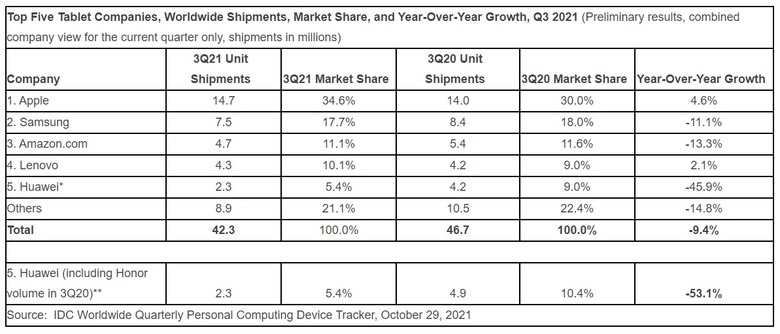Tablet shipments have started to drop again in time for Android 12L
While the past year and a half have been terrible for the world in general, some industries ironically benefited from all the chaos that several global conditions brought about. The tablet and PC markets, once thought to be in their death throes, experienced a surge in demand and sales, mostly due to remote school and work arrangements. That status quo, however, wasn't expected to last forever, and it seems that the shipments of tablets and Chromebooks are already showing the beginning of the end.
The spike in demand for tablets and Chromebooks last year was easily attributed to COVID-19 restrictions that saw many people stuck at home. Businesses, schools, and consumers scrambled to get their hands on these more portable computing devices, especially since supply was a bit short due to travel and shipping limitations caused by the pandemic as well. Demand has started to taper off, however, with many customers already having their fill of these devices by now.
IDC says that the tablet market also ironically benefited from the component shortage that plagued the PC market, but now the tables have turned. Tablet makers, who are often PC makers as well, are now forced to allocate their limited component supplies and resources to other categories, mostly laptops and gaming PCs. As such, the tablet market declined by 9.4% in the third quarter of 2021 compared to the same period last year, shipping only 42.3 million units this time around.

The Chromebook market had it worse with a decline of 29.8% in year-on-year shipments for the third quarter. Considering how much sales of this device category soared in the past months, that's not exactly a bad thing. In fact, Chromebooks continue to sell well in emerging markets, but not enough to keep the global market numbers from falling.

This report comes at an almost ironic time when Google has started to prepare Android for large screens like tablets, Chromebooks, and even PCs. Of course, those markets aren't going away despite their decline, but it could dampen Google's newfound drive to finally make sure Android actually behaves well on tablets.
